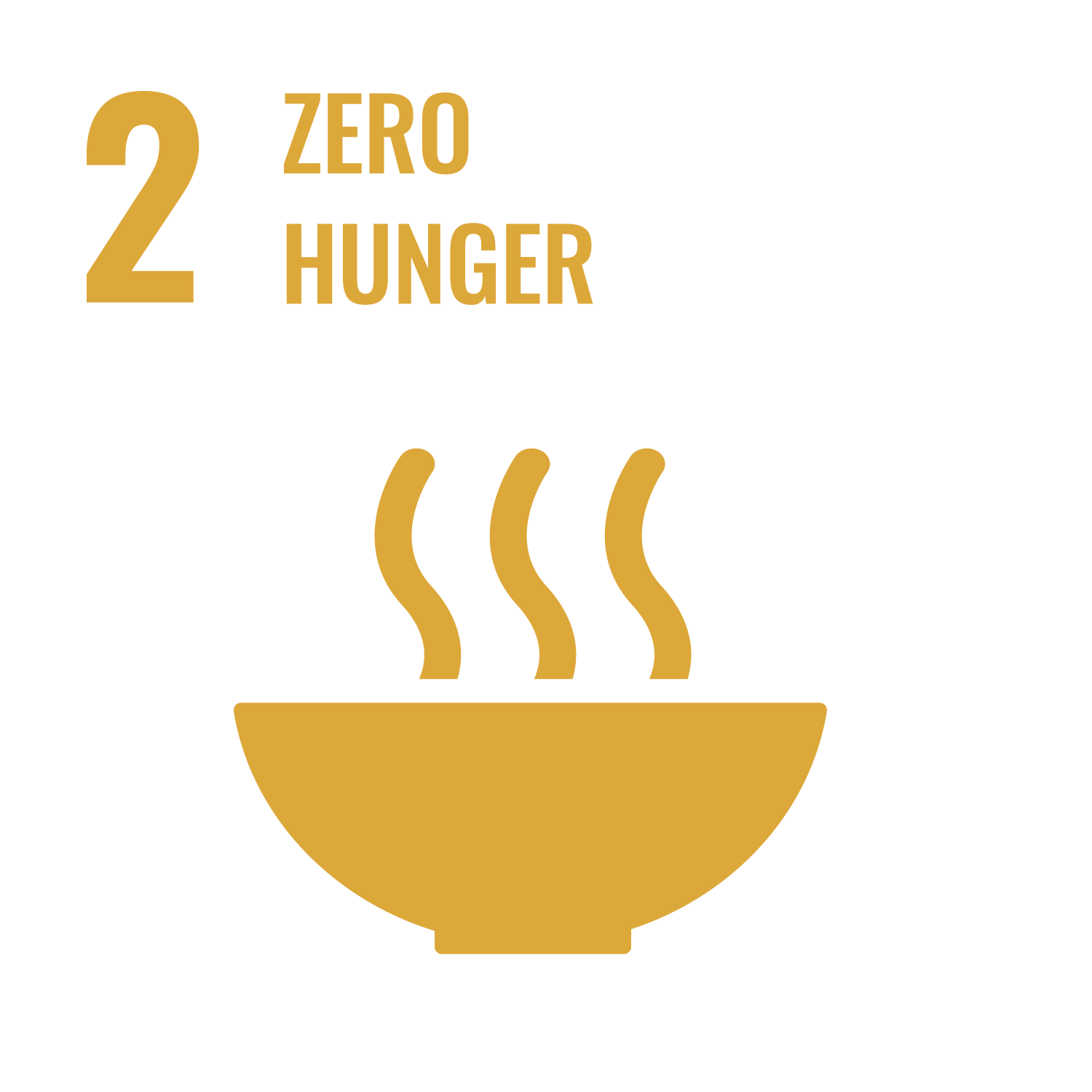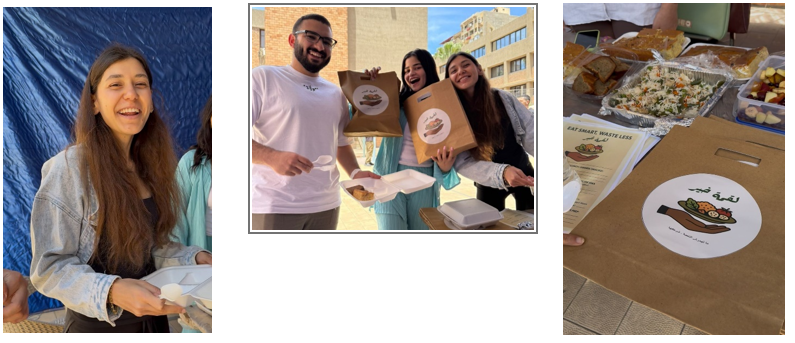 Goal 2. Zero Hunger
Goal 2. Zero Hunger
2.2.1 Campus food waste tracking
2023–2024
AASTMT continues to strengthen its comprehensive food waste tracking and management system across all campuses through multiple efforts.
Aquaculture Research Center
Waste from campuses is used into further productions and bio-fertilizers through the Aquaculture Research Center from 2010 until now, where organic waste is composited and biodiesel is produced from waste using cooking oil.

Greenland project
The ongoing Greenland project that AASTMT takes part in stresses the importance of applying sustainable strategies to reduce waste through engaging with its society. It also promotes awareness among students and staff through educational campaigns, sustainability workshops, and events that encourage responsible consumption and environmentally conscious behavior.
https://www.enicbcmed.eu/greenland-offers-opportunities-egyptian-actors-related-employment
https://aast.edu/en/pdf/TOR_Greenland-project_WP4_TrainingCourses.pdf
Marketing & the Society Food Waste Project
In the Marketing & Society course (Spring 2024), business students developed a project focused on raising awareness about food loss and waste reduction on a small scale within the university community. The initiative aimed to highlight the social and environmental impacts of food waste while encouraging sustainable consumption habits. Through a series of on-campus campaigns, the students organized the collection and redistribution of surplus food from cafeterias and events to campus staff and nearby communities in need. They also created engaging educational materials and workshops to help students and employees understand how to repurpose leftovers, store food efficiently, and compost organic waste. By combining marketing strategies with social responsibility, the project not only reduced food waste but also fostered a culture of care and community support, demonstrating how marketing can contribute to solving real societal challenges.

https://aast.edu/getData/pdf_retreivefileNew_open.php?unit=1212&filename=/mediafiles/1212/Document/149983.pdf
2022-2023
The Arab Academy for Science, Technology, and Maritime Transport (AASTMT) implements a comprehensive food waste tracking and management system across its campuses to measure and reduce the amount of food waste generated. This initiative aligns with the university’s commitment to achieving SDG 2: Zero Hunger and promoting environmental sustainability.
Whole University Approach:
Data Collection and Analysis:
AASTMT tracks food waste daily across all campus dining facilities, cafeterias, and food service outlets. This data is systematically collected and analyzed to identify waste generation patterns and trends.
Reduction Strategies:
Portion Control: Measures are implemented to prevent overproduction and reduce plate waste.
Food Redistribution: Surplus food is donated to local charities and food banks, ensuring effective utilization and reducing food insecurity.
Composting and Recycling:
Organic food waste is converted into nutrient-rich compost, used for landscaping and gardening on campus. This practice supports a closed-loop system that minimizes waste and promotes sustainable operations.
Recycling bins are installed across campuses to facilitate the segregation and recycling of materials such as plastics and glass.
Impact and Benefits:
Environmental Sustainability:
Composting and recycling reduce the amount of food waste sent to landfills, lowering greenhouse gas emissions and conserving resources.
Enhanced Food Security:
Redistribution of surplus food helps address food insecurity among local communities.
Educational Opportunities:
The food waste tracking initiative provides hands-on learning for students and staff, fostering awareness and participation in sustainable practices.
Economic Value:
Recycled materials and composted food waste are repurposed to create products, demonstrating the economic benefits of waste management.
Integration with the GREENLAND Project:
AASTMT’s efforts in campus food waste tracking are complemented by its role in the GREENLAND Project, which emphasizes sustainable practices and waste reduction through education and community engagement. This synergy enhances AASTMT’s broader impact on sustainability goals.
GREENLAND Project
2021-2022
Arab Academy for Science, Technology and Maritime implements an innovative solution to address food waste. The food waste, which amounts to 5mT in year 2021/2022, is being utilized effectively. By converting this waste into composite fertilizers, it not only reduces environmental impact but also promotes sustainability. The recycling of these fertilizers to grow the landscape on all campuses is a commendable initiative that helps create a closed-loop system. This practice not only minimizes waste but also contributes to the beautification and maintenance of the university's surroundings. It serves as an excellent example of how institutions can actively participate in waste reduction and sustainable practices.
Clean up, Recycle and Upcycle
The active involvement of the university's workers in collecting food waste on a daily basis is crucial to its success. The dedicated efforts of these workers play a vital role in ensuring that no food waste goes to waste. Their commitment to collecting and segregating food waste not only helps maintain cleanliness and hygiene but also enables an efficient recycling process. By diligently gathering the food waste, they contribute to the sustainability goals of the university and support the production of composite fertilizers. Their hard work and dedication demonstrate a strong commitment to environmental stewardship and serve as an inspiration to others within the university community.
Campus smart recycling system to turn food organic wastes and recyclables into economic value products.
CAMPUS SMART RECYCLING SYSTEM TO TURN FOOD ORGANIC WASTES AND RECYCLABLES INTO ECONOMIC VALUE PRODUCTS.on the AASTMT news page
Ethical Sourcing of Food and Supplies policy on the AASTMT news page


